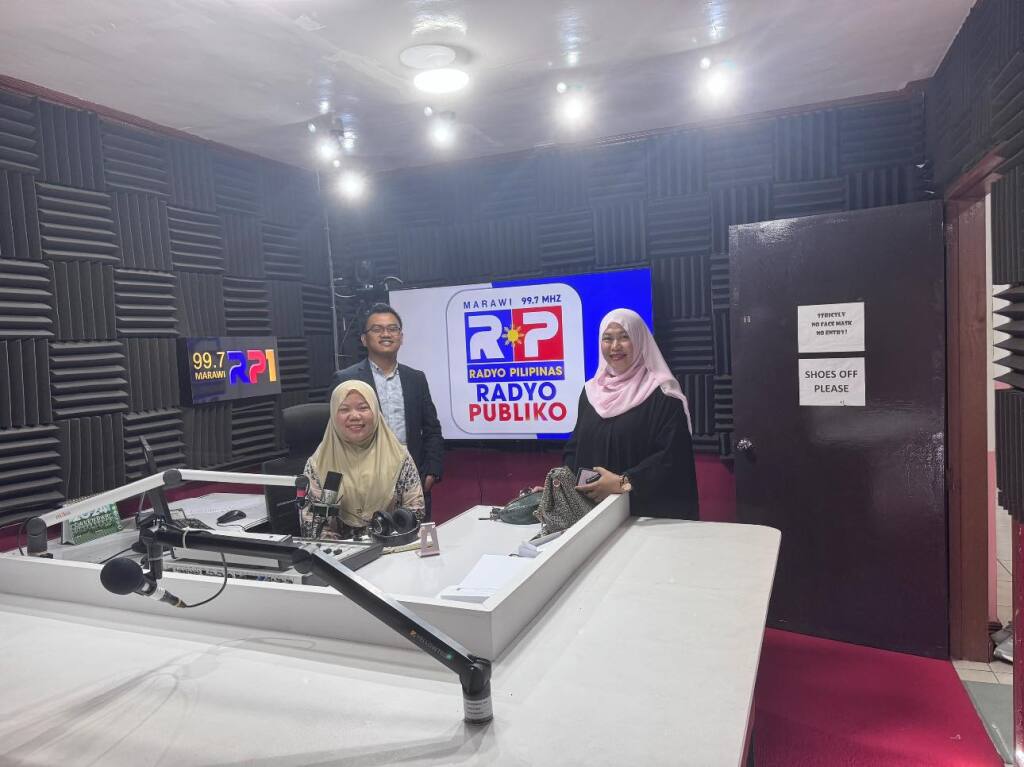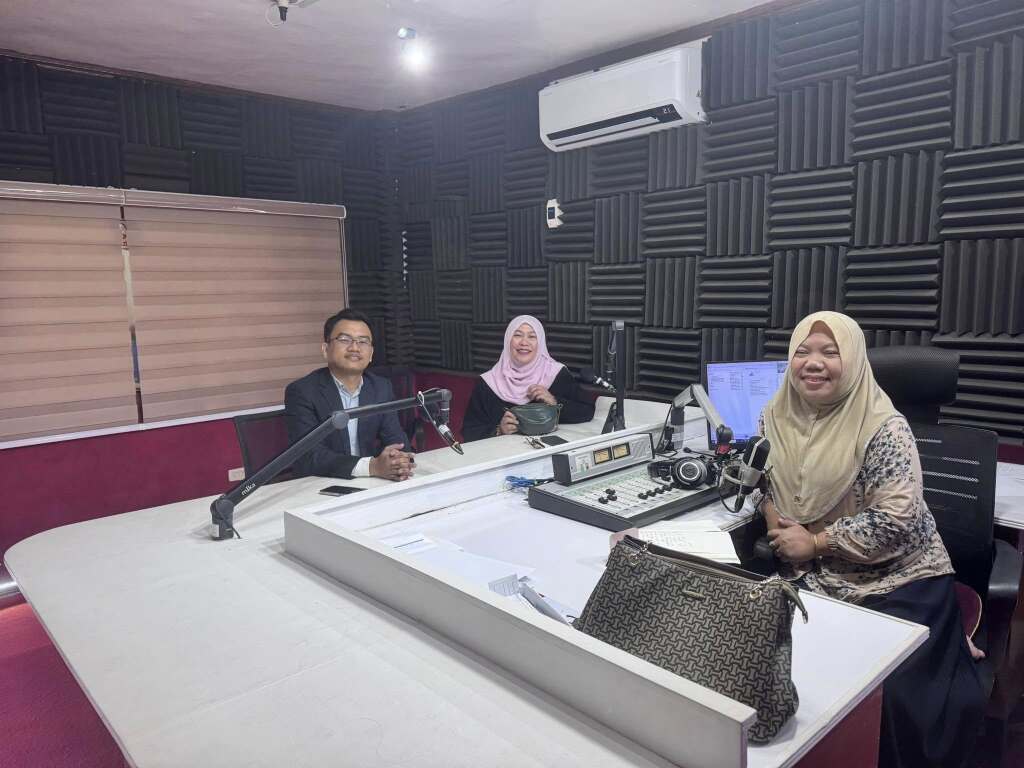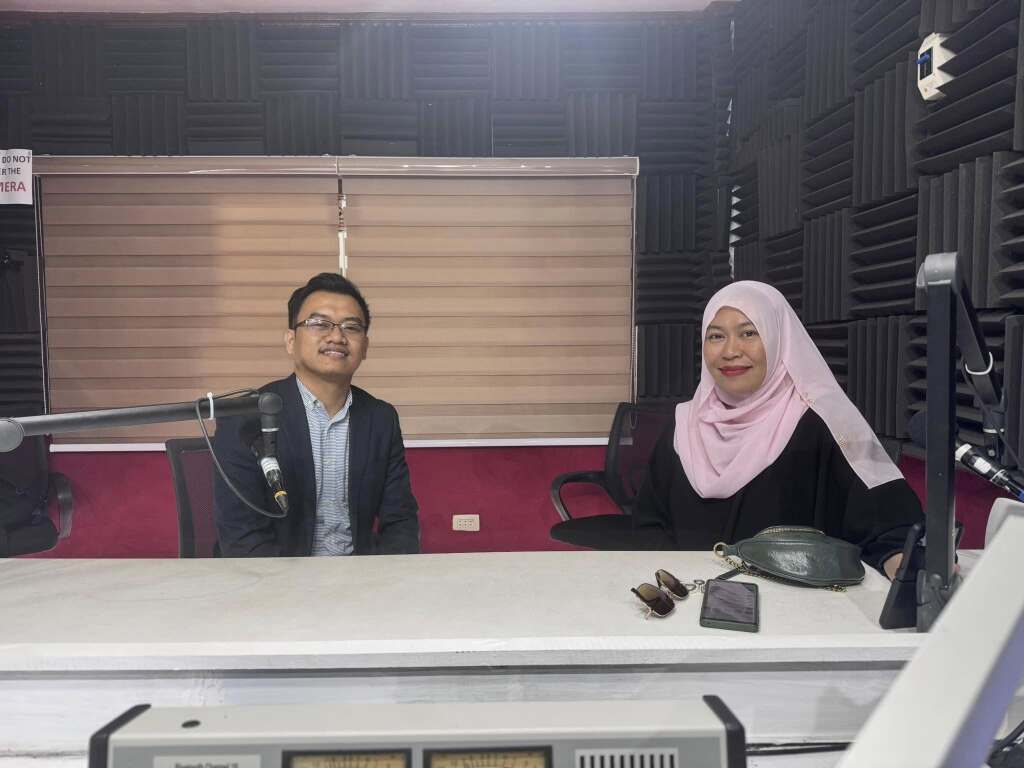Aliah P. Cali-Pascan, DPA, JD
Mindanao State University, Marawi City – In a recent episode of “ShuaraMSU,” a radio program implemented by the Institute for Peace and Development in Mindanao (IPDM) hosted by Dr. Aliah P. Cali-Pascan and Dr. Khayronesah Abbas in partnership with Radyo Pilipinas Marawi, listeners were treated to a compelling discussion on peace education, blending academic insights with practical realities.
The guest, Prof. Raihan Yusoph, a faculty member from the History Department, shared valuable perspectives on applying peace theories to real-world situations, particularly within the context of Mindanao.
The program also provided a unique window into the experiences of a PhD student in Peace Studies at Hiroshima University, offering a personal narrative of navigating academic challenges and cultural adjustments in Japan.
Prof. Raihan Yusoph: Applying Theory to Practice
Prof. Yusoph emphasized the importance of creating a logical framework to address the present situation in Mindanao. He highlighted the necessity of bridging the gap between theoretical knowledge and practical application, a crucial aspect of effective peace education. “We need to move beyond simply studying theories,” he stated, “and actively apply them to the challenges we face in our communities.”
This resonates deeply with the core mission of “ShuaraMSU,” which aims to foster dialogue and promote peace education within the region. The program’s focus on practical application is particularly relevant given the ongoing efforts to rebuild and promote peace in Marawi City.
A Student’s Journey: Peace Education in Japan
Interwoven with Prof. Yusoph’s insights was the personal narrative of a PhD student in Peace Studies at Hiroshima University. This student’s reflections shed light on the challenges and opportunities of pursuing peace education in a foreign context.
“As a PhD student, I’m constantly thinking about how I can contribute to my community back home,” the student shared. “We have courses like FPE 101, but there’s always room for improvement. Observing how peace teachings are integrated into the formative years in Japan, particularly the emphasis on discipline, has been eye-opening.”
However, the journey has not been without its challenges. The student recounted the initial hurdles of adapting to a new language and culture. “Since the program is designed for international students, I didn’t go through a formal Japanese language training before arriving,” they explained. “Finding halal food and navigating directions, where every corner is marked in a different dialect, were also significant challenges.”
Bridging Cultural Gaps and Fostering Peace
The student’s experiences highlight the importance of cultural sensitivity and contextual relevance in peace education. “How do you approach the challenges of cultural sensitivity and contextual relevance in peace education?” is a very important question that peace educators must ask themselves.
The student’s reflections also touch upon the broader challenges facing peace education today. “What are the most pressing challenges facing peace education today, and what innovative approaches are needed to address them?” is a question that many peace professionals are constantly pondering.
The student’s experience also highlights the importance of asking “What are the differences between peace education in formal education settings, versus non-formal community settings?” and “How would you describe the relationship between peace education and human rights education?” He shared that teaching vocational courses while in penitentiary is not that so effective. In other countries, they teach peace education instead as an approach to reflect of what is their situation. It is like a moral recovery on their while they are inside the jail.
Despite the challenges, the student remains hopeful about the future of peace education. “What are your hopes for the future of peace education and its role in creating a more just and peaceful world?” is a question that drives their academic pursuits.
Moving Forward
“ShuaraMSU” continues to serve as a vital platform for disseminating knowledge and fostering dialogue on peace education. By sharing the experiences of individuals like Prof. Yusoph, the program bridges the gap between theory and practice, inspiring listeners to actively contribute to building a more peaceful and just society.




